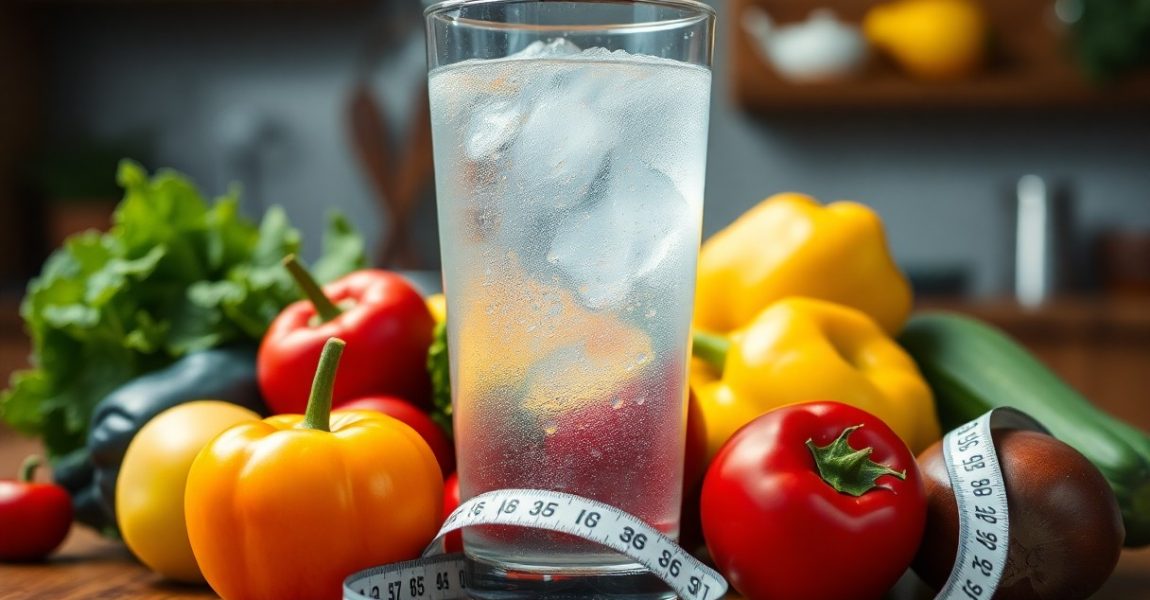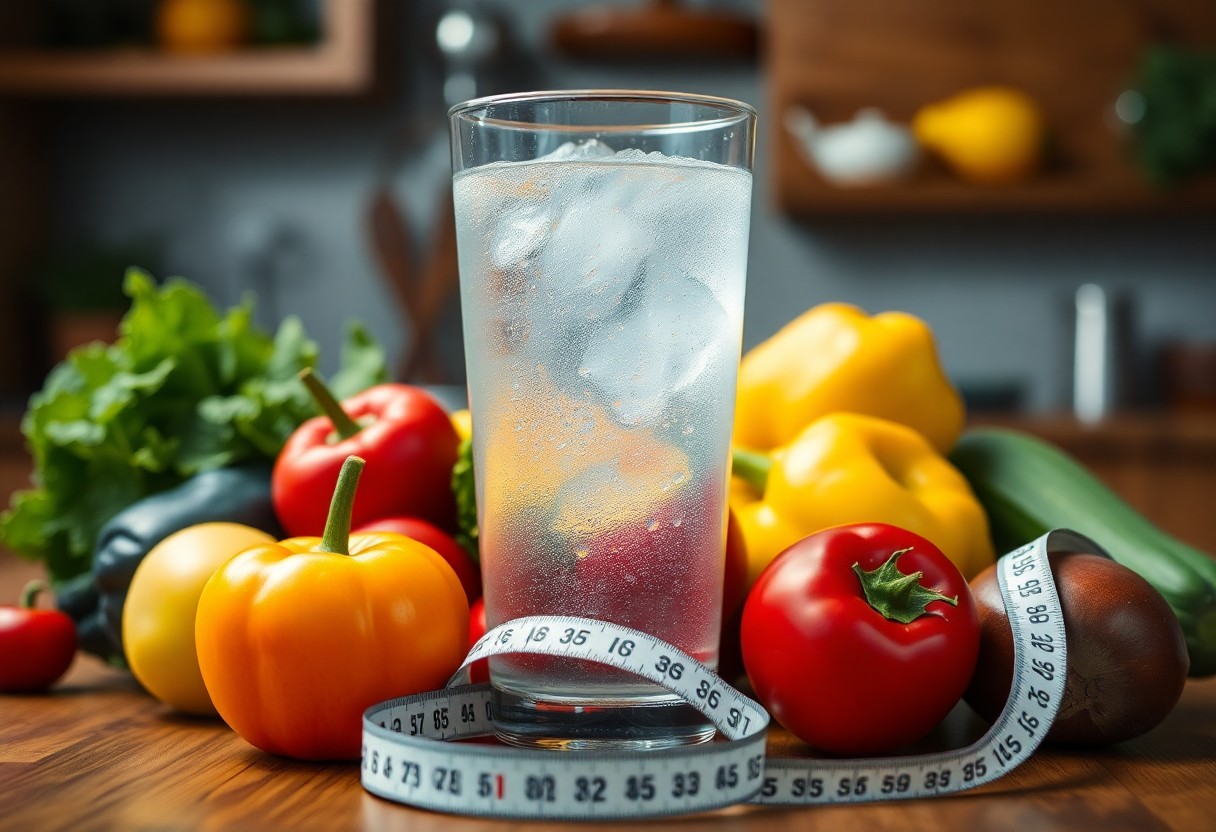
Water plays a pivotal role in your overall health and may influence your weight loss journey. When you increase your water intake, your metabolism can temporarily boost, helping you burn more calories. Additionally, drinking water before meals might reduce hunger, leading to lower calorie consumption. However, science shows that water alone is not a magic solution for losing weight; it must be combined with a balanced diet and regular exercise for effective and sustainable results. Stay on track with your weight loss goals effortlessly — we supply water dispenser service ensures you stay hydrated, curb cravings, and support a healthier metabolism every day.

Contents
- 1 The Mechanisms of Hydration and Metabolism
- 2 Evidence Linking Hydration to Weight Loss
- 3 Practical Strategies: Boosting Water Consumption
- 4 Debunking Myths: Separating Fact from Fiction
- 5 Lifestyle Changes Beyond Hydration
- 6 Conclusion
- 6.0.1 Q: How does drinking water influence weight loss?
- 6.0.2 Q: Can replacing sugary drinks with water aid in losing weight?
- 6.0.3 Q: Is there an optimal amount of water to drink for weight loss?
- 6.0.4 Q: Does drinking cold water burn more calories than room temperature water?
- 6.0.5 Q: Are there any scientific studies that support water intake as a method for weight management?
The Mechanisms of Hydration and Metabolism
Hydration directly supports metabolic functions by facilitating biochemical reactions vital for energy production and fat breakdown. When you stay well-hydrated, your body’s cells operate efficiently, enabling enzymes to process nutrients quicker and convert fat into usable energy. Conversely, dehydration can slow metabolism by reducing blood flow, impairing oxygen delivery, and hindering waste elimination, thus limiting your body’s ability to burn calories effectively. Ensuring consistent water intake keeps these metabolic pathways optimized, which can subtly aid your weight management efforts. Boost your weight loss journey with ease — our dispenser for water makes it simple to stay hydrated throughout the day, helping control appetite and support a healthy metabolism!
How Water Affects Caloric Burn
Drinking water temporarily boosts your resting energy expenditure through a process called water-induced thermogenesis. For example, studies show that consuming about 500 ml of water can increase your metabolic rate by approximately 10-30% for up to an hour, burning an extra 24-30 calories. Cold water may amplify this effect as your body expends additional energy warming it to body temperature. While the calorie burn isn’t massive, these small boosts accumulate over time, supporting your weight loss goals when paired with diet and exercise.
The Role of Water in Appetite Regulation
Water intake helps modulate hunger signals by influencing hunger-related hormones such as ghrelin and peptide YY. Consuming a glass of water before meals can create a feeling of fullness, leading to reduced calorie intake. Several clinical trials found that participants drinking water before eating consumed fewer calories, suggesting hydration acts as a natural appetite suppressant. Staying hydrated can also reduce cravings caused by mistaking thirst for hunger, helping you maintain better control over your eating habits.
Further exploring appetite regulation, research indicates that adequate hydration blunts the release of ghrelin, the hormone that stimulates hunger, while promoting peptide YY, which signals fullness. In a 12-week study, overweight adults who drank water before meals lost 44% more weight compared to those who didn’t. This effect appears more pronounced in middle-aged and older adults, highlighting water’s potential as a simple, safe strategy to support appetite control and enhance dietary adherence during weight loss efforts.
Evidence Linking Hydration to Weight Loss
Increasing your water intake can influence weight loss through several physiological mechanisms. Studies suggest that water boosts metabolism temporarily, enhances feelings of fullness, and helps reduce calorie intake by replacing sugary drinks. For practical guidance on optimal hydration tailored to weight loss goals, check out How Much Water Should I Drink to Lose Weight? Exploring hydration strategies can make a measurable impact on your fat loss journey.
Key Studies: The Correlation with Increased Water Intake
Several well-designed studies found that drinking 500 ml of water before meals led to a significant reduction in calorie consumption in adults aged 55-75, resulting in greater weight loss over 12 weeks. Other research indicates that each additional 1.5 liters per day of water intake, when replacing caloric beverages, correlates with a 2-3% decrease in body weight. These findings highlight how simple changes in hydration habits can support effective, sustainable weight management.
Experimental Findings: Short-Term vs. Long-Term Effects
Short-term experiments demonstrate that drinking cold water temporarily boosts resting energy expenditure by up to 30% for about an hour, contributing to an extra calorie burn of roughly 24-30 kcal. Long-term interventions confirm that consistently maintaining adequate hydration amplifies these metabolic benefits and improves fat oxidation. This dual effect provides both immediate and accumulating advantages for weight loss when water replaces higher-calorie drinks.
In further detail, acute studies reveal that the rise in metabolism due to water consumption is linked to the energy your body uses to warm the ingested water to body temperature—a process called water-induced thermogenesis. Over the long term, staying well-hydrated supports optimal kidney function and hormonal balance, which in turn enhances lipid metabolism and appetite regulation. Together, these mechanisms form a compelling biological basis for integrating water as a strategic component of your weight management routine.
Practical Strategies: Boosting Water Consumption
Increasing your daily water intake becomes manageable with simple adjustments to your routine. Setting specific times to drink, such as having a glass right after waking up or before meals, helps establish consistent habits. Using a reusable water bottle with marked measurements can visually track your progress, encouraging you to reach recommended targets like 2-3 liters per day. Combining this with mindful reminders on your phone ensures you stay hydrated without needing constant effort, ultimately supporting your weight management goals.
Incorporating Hydration into Daily Life
You can make hydration seamless by linking water intake to existing routines—sip a glass before brushing your teeth or while preparing meals. Carrying a water bottle everywhere adds convenience, intercepting dehydration before it sets in. Drinking a full glass of water before snacking or meals often reduces appetite by triggering stomach stretch receptors, potentially leading to fewer calories consumed. These small, integrated habits contribute cumulatively to improved hydration without disrupting your daily flow.
Creative Ways to Enhance Water Intake
Adding natural flavors like lemon, cucumber, or mint to your water not only improves taste but can motivate you to drink more throughout the day. Herbal teas served cold or warm count toward hydration and introduce variety. Infusing water with antioxidant-rich berries offers both flavor and health benefits, making each sip enjoyable. Using sparkling water for a fizzy alternative helps prevent boredom from plain water, increasing the likelihood you’ll meet your hydration targets consistently.
Enhancing water taste addresses one of the main barriers to adequate hydration—monotony. By experimenting with infusions, you transform water into a more desirable drink that can double as a refreshing treat, especially for those sensitive to plain water. Studies have shown that flavored water can increase daily consumption by up to 20%, mainly because it reduces the sensory monotony and stimulates saliva production. Additionally, incorporating iced herbal teas expands your flavor options while supporting your metabolism and digestion. These creative strategies ensure hydration stays enjoyable, enhancing both your fluid intake and overall wellness.
Debunking Myths: Separating Fact from Fiction
Sorting through weight loss advice can get tricky, especially with how many myths surround drinking water. A lot of ideas about water’s impact on shedding pounds are either exaggerated or misunderstood. Differentiating what’s backed by science from what’s hype helps you focus your efforts efficiently and avoid chasing misleading claims.
Misconceptions About Water’s Role in Weight Loss
You might hear that drinking gallons of water instantly melts fat or that water flushes out toxins to speed up weight loss; these ideas are mostly oversimplifications. While staying hydrated supports metabolism and aids digestion, water itself doesn’t directly burn fat. Drinking water can help control appetite and prevent overeating since sometimes thirst is mistaken for hunger, but it doesn’t replace the need for a proper diet and exercise.
The Reality of “Water-Weight”
“Water-weight” refers to the temporary retention or loss of fluids in your body, which can cause weight to fluctuate by a few pounds day-to-day. This shift isn’t related to fat loss but to hydration levels, salt intake, and hormonal cycles. Understanding this distinction helps you avoid getting misled by the scale and focus on long-term progress instead of short-term changes.
Fluctuations from water weight often arise after consuming salty meals or carbohydrates, which cause your body to hold onto extra fluid. For example, glycogen stored in muscles binds with water—about 3 grams of water for every gram of glycogen—which can increase weight temporarily. When you hydrate adequately and maintain a balanced diet, your body’s fluid levels stabilize, so these variations become less dramatic and less confusing during your weight management journey.
Lifestyle Changes Beyond Hydration
Water intake alone rarely leads to significant weight loss without complementary lifestyle adjustments. You often see better results when hydration is paired with consistent exercise and mindful eating. Studies indicate that combining proper fluid balance with nutrient-rich foods and physical activity enhances metabolism and fat burning. Adjusting meal timing, incorporating strength training, and managing stress further multiply benefits. These elements work synergistically to help you reach and maintain a healthy weight more effectively than relying on water consumption alone.
The Importance of a Balanced Diet and Exercise
Caloric intake and expenditure remain the pillars of weight management. You reduce energy density by choosing whole grains, lean proteins, and plenty of vegetables, which keeps you full with fewer calories. Exercise elevates your basal metabolic rate and preserves muscle mass during weight loss. Engaging in at least 150 minutes of moderate aerobic activity weekly alongside resistance training can accelerate fat loss and improve overall health metrics, making your weight loss journey sustainable and balanced.
Drinking Water as Part of a Holistic Weight Loss Approach
Incorporating water into your broader weight loss strategy enhances its effects but doesn’t replace other methods. Drinking water before meals can reduce appetite temporarily, promoting lower calorie consumption. Adequate hydration supports digestion, nutrient absorption, and physical performance, all vital when dieting. You can improve metabolic processes by avoiding sugary drinks and choosing water, supporting fat oxidation and energy levels throughout the day.
Further elaborating on this, replacing high-calorie beverages with water reduces daily caloric intake significantly, sometimes by 200 to 400 calories. Research shows that participants who drank about 500ml of water before meals lost up to 44% more weight over 12 weeks compared to those who didn’t. Hydration also helps regulate cortisol levels, which when elevated, can contribute to fat retention, particularly around the abdomen. You can enhance satiety signals because water increases stomach volume without adding calories, which assists in preventing overeating. Together, these effects make water a potent, natural ally within an integrated weight loss plan.
Conclusion
Summing up, drinking more water can support your weight loss efforts by boosting metabolism, reducing calorie intake, and curbing hunger. While water alone won’t cause significant weight loss, incorporating it into a balanced diet and regular exercise routine enhances your overall results. By staying properly hydrated, you help your body function efficiently, making it easier to achieve and maintain a healthy weight. Therefore, increasing your daily water intake is a simple, effective strategy to complement other weight management practices.
Q: How does drinking water influence weight loss?
A: Drinking water can support weight loss efforts by increasing feelings of fullness, which may reduce calorie intake. Additionally, water can slightly boost metabolism temporarily through a process called water-induced thermogenesis, where the body uses energy to warm the water to body temperature.
Q: Can replacing sugary drinks with water aid in losing weight?
A: Yes, substituting sugary beverages like soda or juice with water reduces overall calorie consumption, which can contribute to weight loss. Since sugary drinks often contain high amounts of added sugars and calories without filling you up, replacing them with water helps decrease total energy intake.
Q: Is there an optimal amount of water to drink for weight loss?
A: While individual hydration needs vary, drinking water before meals—about 16 ounces (500 ml)—has been shown in some studies to reduce hunger and calorie consumption during meals. Overall, drinking an adequate amount that meets your body’s needs supports metabolic processes but consuming excessive water does not directly increase weight loss beyond hydration benefits.
Q: Does drinking cold water burn more calories than room temperature water?
A: Drinking cold water requires the body to expend a small number of calories to heat it up to body temperature, which marginally increases calorie burning. However, the effect is minimal and not substantial enough alone to cause significant weight loss.
Q: Are there any scientific studies that support water intake as a method for weight management?
A: Yes, multiple studies have indicated that increasing water intake, especially prior to meals, can aid in weight management by promoting fullness and reducing calorie intake. Some research also links water consumption with a modest increase in resting energy expenditure. However, water should be part of a comprehensive approach including diet and exercise for effective weight loss.
- August 5, 2025
- Benefits
